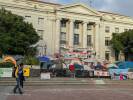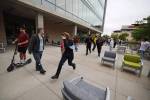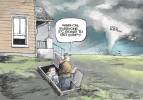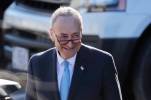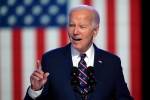Las Vegas Bowl gets new name and sponsor: Call it Royal Purple
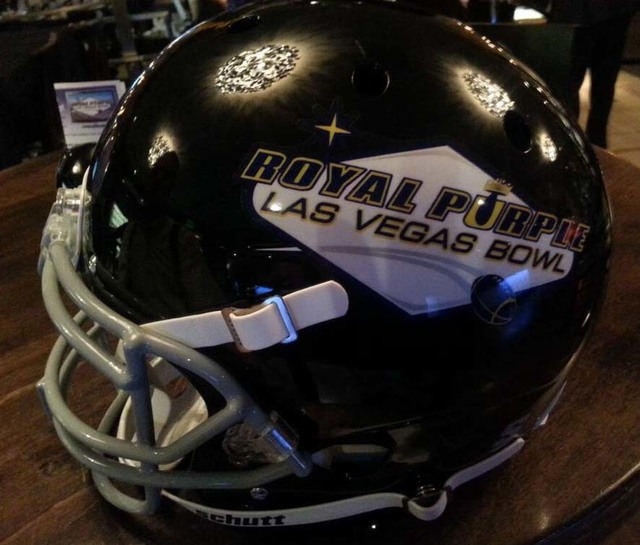
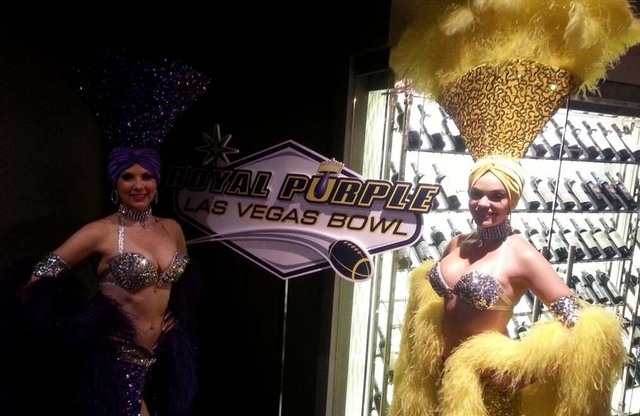
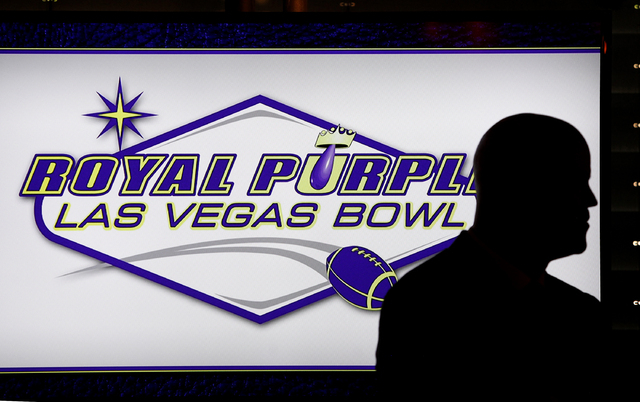

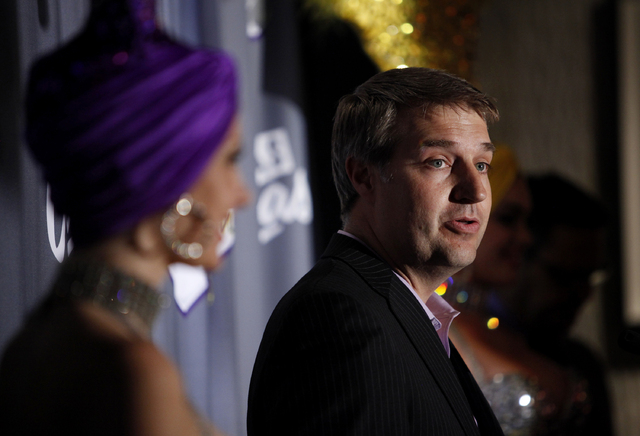
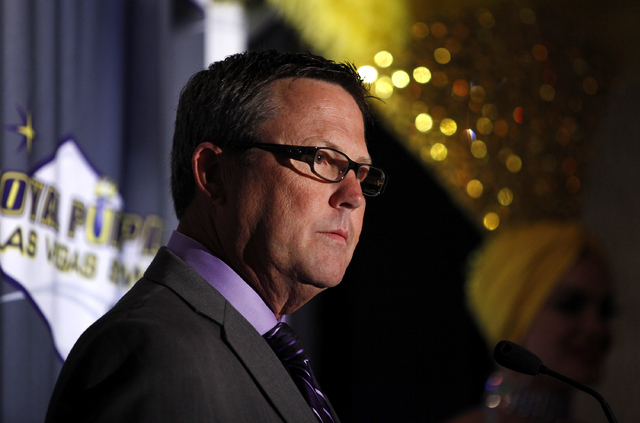
ESPN Regional Television, Inc., owners of the annual college bowl game in Las Vegas, has scored a three-year title sponsorship deal with Texas-based Royal Purple, a Top 5 retail synthetic oil lubricant company.
The Royal Purple Las Vegas Bowl — formerly Maaco Bowl Las Vegas — will allow the company based in Porter, Texas, outside Houston, to expand business in the western U.S. markets represented by the Mountain West and Pac 12 conference teams, said Bryan Yourdon, Royal Purple president. Those conferences send teams to Las Vegas for the annual bowl game.
“We want to expand our national retail programs, and putting ourselves on the biggest stage is important. People are passionate about college football,” Yourdon said Wednesday before the bowl game luncheon at the Hard Rock Hotel.
In 2012, Royal Purple was acquired by Calumet Specialty Products Partners, an Indianapolis-based refiner. Royal Purple typically sponsors racecar events and racers, including Dylan Kwasniewski, an 18-year-old NASCAR phenom who moved recently from Las Vegas to the Charlotte, N.C., area.
Royal Purple also will use the 22nd annual bowl game on Dec. 21 at Sam Boyd Stadium to entertain company clients and employees, Yourdon said. The company’s sponsorship focus is the 18-45 demographic, he said.
Dan Hanneke, executive director of Royal Purple Las Vegas Bowl, said the deal was cut about a month and a half ago. He said the deal is worth more than $1 million a year, but he declined to divulge specifics about the financial terms.
Hanneke also said the game’s relationship with the Mountain West and Pac 12 has been extended another six years, from 2014 to 2019.
The bowl game organizers have the first pick of the Mountain West and the fifth pick of the Pac 12. Last year’s game pitted Boise State and Washington, and attracted 33,217 fans. Boise State defeated Washington 28-26.
ESPN Regional Television bought the bowl game from the Las Vegas Convention and Visitors Authority in 2000. It’s one of seven bowl games owned by ESPN.
Through the years, the game in Las Vegas has had several title sponsors. In 1999, it was known as the EA Sports Las Vegas Bowl. The game was known as the SEGA Sports Las Vegas Bowl in 2001 and 2002. Pioneer Corp. was the title sponsor from 2003 to 2008. Maaco owned the title sponsorship rights the past four years.
The game owners say the bowl generates $25 million in local spending.
The luncheon’s keynote speaker, Dana White, president of Las Vegas-based Ultimate Fighting Championship, cited the financial impact of sports events in Sin City.
“We make money from people coming here — and people will come here for college football,” White said. “This city runs and works from people coming here.”
White, known for his brutally honest and in-your-face comments, ended his chat by telling the crowd of local sports leaders, “That’s all I got.”
ABC will broadcast the Royal Purple Las Vegas Bowl at 12:30 p.m. on Dec. 21. The bowl game started as the California Raisin Bowl and was played in Fresno, Calif., from 1981 to 1991. The game relocated to Las Vegas in 1992 and was renamed the Las Vegas Bowl.
Alan Snel can be contacted at asnel@reviewjournal.com or 702-387-5273. Follow Snel on Twitter at @bicyclemansnel.



